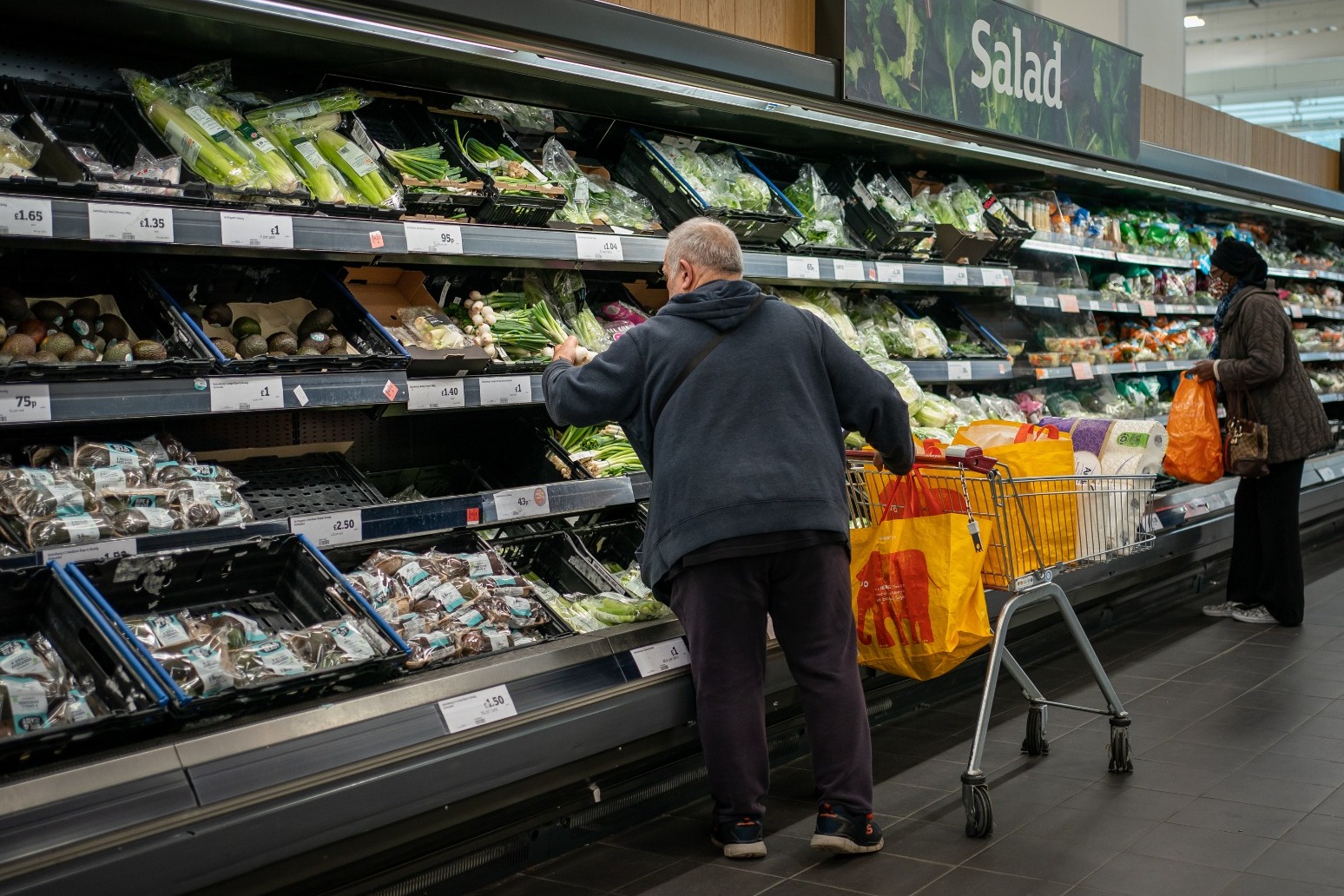
Food watchdog widening sphere from safety to health and sustainability
The UK’s food watchdog is to widen its sphere from safety to the health and sustainability of products sold in the UK in response to changing consumer priorities.
The Food Standards Agency (FSA) said its focus remained on ensuring that products were safe while developing an emphasis on making food healthy and more sustainable for consumers.
The regulator said its widened interests were an effort to stay ahead of a fast-changing food system and took into account the growing public concern about health and climate change.
The plan reflected the FSA’s greater responsibilities in its post-Brexit regulatory role, which chairwoman Professor Susan Jebb described as “both a challenge and an opportunity”.
Ms Jebb told the PA news agency that Brexit, the pandemic and its related health and supply chain issues and now the war in Ukraine had all led UK consumers to think differently about food.
More than three in five people polled by the FSA for its most recent consumer insights tracking survey said they felt concerned about the impact of food production on the environment, while more than half reported concern about the healthiness of their personal diet.
Ms Jebb said: “There is a new commitment to food that is healthier and more sustainable and there are big challenges to reduce the burden of avoidable poor health.
“Long-term health and environmental sustainability top the list of priorities for consumers.”
She added: “Two decades on, the FSA has developed a strong reputation for its work to ensure food is safe. This must continue, but now is the right time for us to consider how we can contribute to wider government efforts to reshape the food system to tackle diet-related disease and climate change.
“Our five-year plan will enable us to work with partners and other stakeholders in the food system to play a full and active part in supporting the change that is needed, while continuing to uphold the interests of consumers so we can all enjoy food we can trust.”
Ms Jebb said the FSA would work closely with the Department of Health and Defra, and signalled it was also interested in working with the Department of Education to ensure food standards in schools were being met.
FSA chief executive Emily Miles said: “Leaving the EU has changed the FSA’s role. We have taken on new functions, like approving new types of food that come on sale here and setting rules for checks of imported food.
“Today the FSA therefore plays a more critical role than ever in supporting governments in England, Wales and Northern Ireland on matters relating to food. The strategy commits us to put consumer interests at the heart of our work so that food is safe and what it says it is as well as being healthier and more sustainable.”
Simon Billing, executive director at the Eating Better alliance, which is working to accelerate a shift to sustainable diets, said: “We need a joined-up approach to sustainable eating, so it’s welcome that the FSA is signalling that it will work across government departments to tackle the climate, nature and health crisis, which are interconnected.
“Changing the food environment to help us all eat healthier and more sustainably starts with the public sector and its £2 billion spending power.
“As a watchdog, the FSA needs the teeth to hold local councils and other institutions accountable, to ensure the meals we serve children while they learn, or patients recovering in hospital, are good for us and the planet.”
Published: by Radio NewsHub